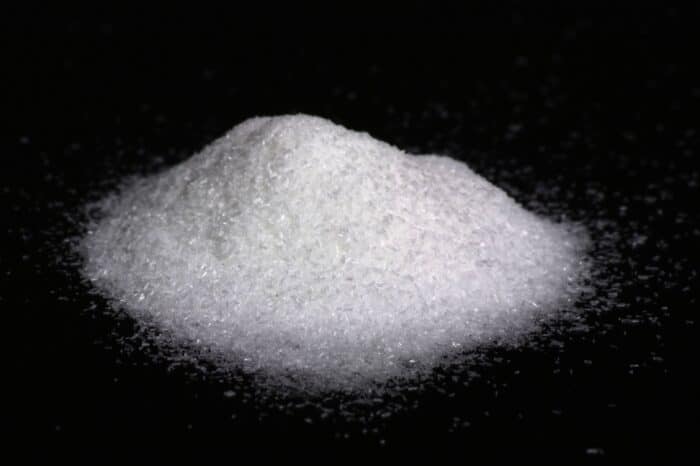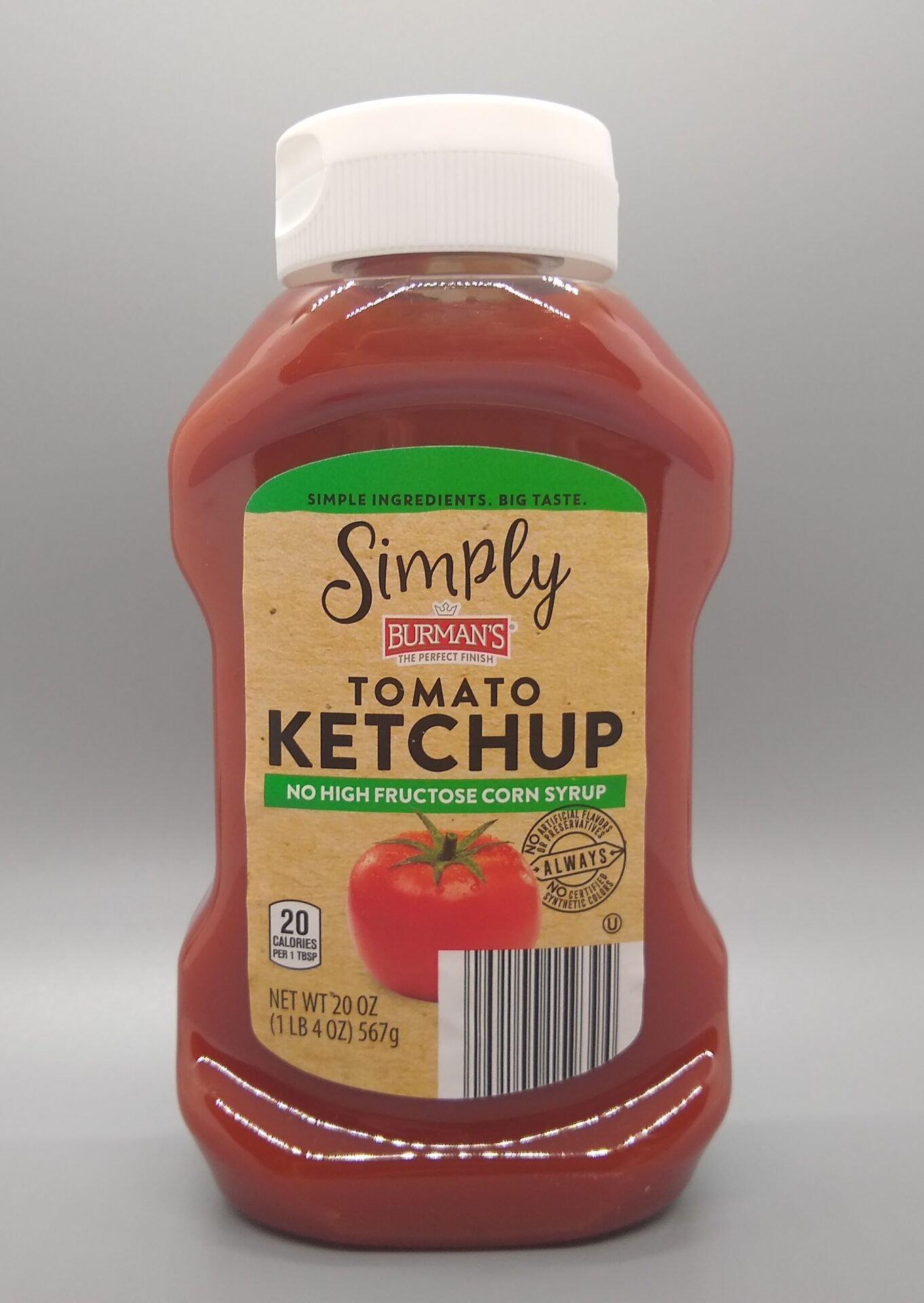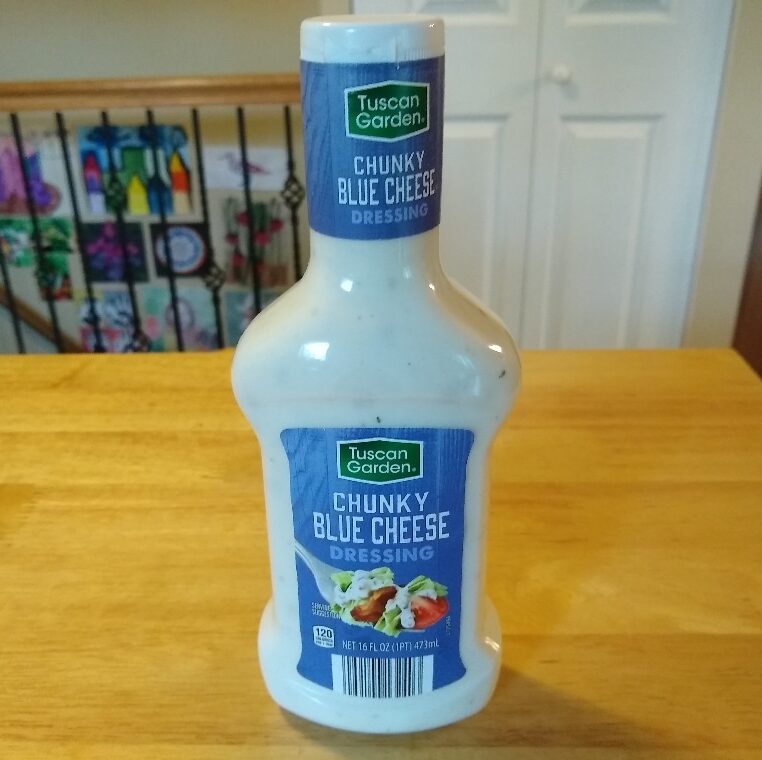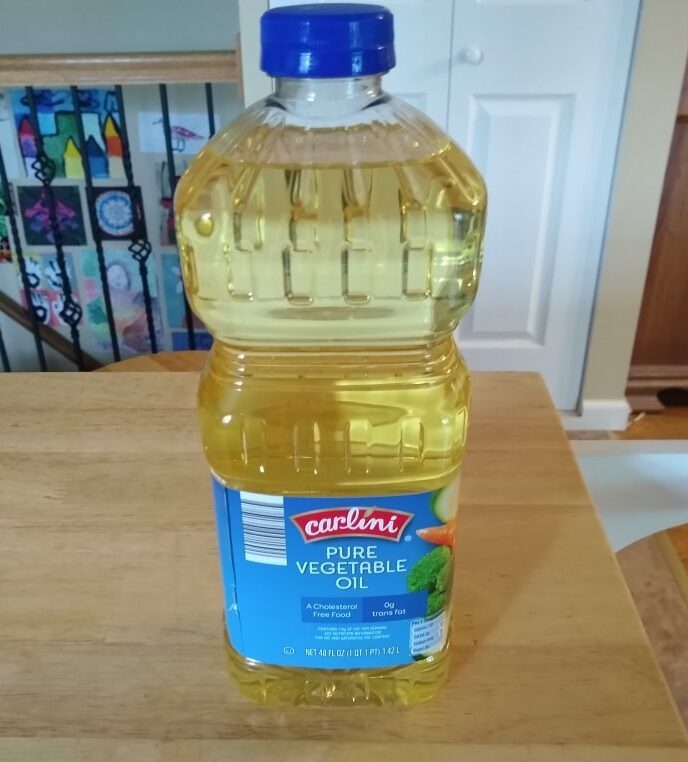Last Updated on May 12, 2020

MSG crystals. (Credit: Wikipedia)
Now more than ever, consumers are concerned about nutrition labels. It’s not just about calories, or fat, or sugar, or even gluten vs. gluten-free — it’s about the ingredients, where they come from, and what their potential benefits or harm could be.
Aldi has made a number of changes to its product lineup in recent years, and while there is some misinformation about some of those changes (tip: Aldi is not going “full organic”), Aldi is generally trending toward healthier foods in its stores.
Case in point: in 2015, Aldi made a few key changes to the ingredients it puts in its private label brands. (By private label, I’m referring to Aldi house brands, not any national brands it might occasionally carry.) Those changes are as follows:
1. Aldi Products Do Not Contain Artificial Colors
Aldi private labels are free of what are called “certified synthetic colors,” or what the rest of us call artificial colors or food dyes. The FDA currently allows several artificial food dyes, claiming they are safe for human consumption, but the research is mixed on these food dyes, especially when it comes to hyperactivity, and some countries, like the United Kingdom, are encouraging food producers to move away from them, especially as they are purely cosmetic.
Aldi, while noting the FDA’s stance, also argues that it has removed artificial colors in response to consumer interest. Consequently, Aldi products are more likely to have plant-based color ingredients, such as beet juice or paprika.
2. Aldi Products Do Not Contain MSG
Monosodium Glutamate, popularly known as MSG, is a flavor enhancer added to food. It’s perhaps most famously added to Chinese food, but it appears in other foods, too, and is even available in some grocers under the Ac’cent label.
There are some consumer concerns about the safety of MSG, citing anecdotal evidence of symptoms like headaches and nausea after consuming foods with the enhancer. There isn’t much research to back up these claims — and there isn’t any evidence that MSG causes long-term health problems — although researchers concede that it’s possible that there could be short-term reactions to MSG.
That all said, Aldi has decided that MSG is something consumers don’t want in their foods. Because of that, when you buy Aldi private labels, you can be certain there isn’t any MSG in them … not even the Chinese food.
3. Aldi Products Do Not Contain Added Partially Hydrogenated Oils or Trans Fats
Partially hydrogenated oils, also known as PHOs or trans fats, can be found naturally in some meat and dairy products, but the real concern is about added trans fats. The research here is loud and clear: trans fats are bad for you, and you should keep them out of your diet as much as you can. Not only do they raise the “bad” cholesterol, but they lower the “good” stuff, too. This is a quick route to heart problems.
In 2015, the FDA ruled that, for the most part, companies could no longer add trans fats to food products, especially processed ones. The ruling took effect for most products in mid-2018, with a very limited number of products extended to 2021. Aldi, however, did not wait for this ruling to take effect, and the grocer removed trans fats from all of its products in 2016.





Hi I love to know about the Marshmallows & Stars frosted oat cereal with mini magical marshmallows it’s say in the ingredients it have Gelatin I want to know it gelatin from what animal please.
We’ve written about that cereal over here: https://www.aldireviewer.com/millville-marshmallows-stars/
However, we aren’t sure what the gelatin is made from. You can try asking Aldi. If you get an answer feel free to leave a comment on the cereal post link above and let us know what they say.